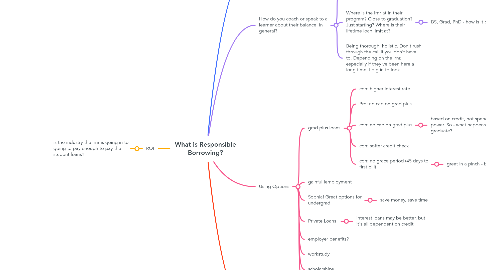What is Responsible Borrowing?
por Stephen Haines


1. ROI
1.1. is the industry the lrnr is going in to going to pay enough to pay the student loans?
2. Why Coach To $0?
3. How do you coach or speak to a learner about their balance, in general?
3.1. the amount they need is their direct cost. Any more is excess, and that is what a refund is - excess.
3.1.1. follow up - careful when adding or taking courses away
3.2. Where is the lrnr at in their program? Close to graduation? Just starting? Where is their lifetime loan limit at?
3.2.1. BS, Grad, PhD - how is it playing?
3.3. Being thorough, holistic. Don't rush through the call if you don't have to. Depending on the lrnr, especially if they've been here a long time, I dig in to look.
4. Using Options
4.1. grad plus loans
4.1.1. con: higher interest rate
4.1.2. Pro: no cap on grad plus
4.1.3. con: no cap on grad plus
4.1.3.1. based on credit, not spending power. So - what happens when I graduate?
4.1.4. con: softer credit check
4.1.5. con: no grace period (45 days to first bill)
4.1.5.1. great in a pinch - but tough long-term
4.2. gainful lemployment
4.3. Sophia! Great options for undergrad
4.3.1. save money, save time
4.4. Private Loans
4.4.1. interest loans may be better, but it's all dependent on credit
4.5. employer benefits?
4.6. workstudy
4.7. scholarships
4.8. small out of pocket payments
5. Understanding Capitalized Interest
5.1. Progression, next level degrees
5.1.1. Borrowing what you need, not what you want.
